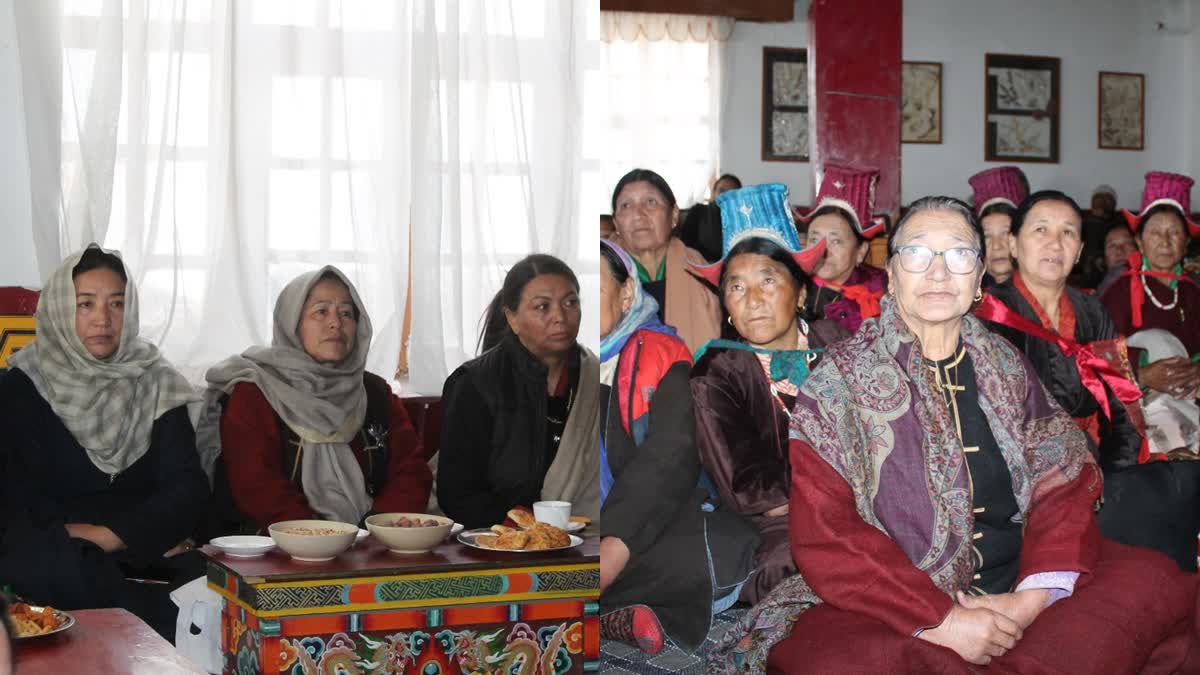Leh: The Women’s Alliance of Ladakh organised a brainstorming session on Monday to address the growing concerns around dowry practices in the region.
The event brought together community leaders, experts, and concerned citizens to discuss actionable solutions and chart a way forward to address the pressing issue of Dowry.
In his address, Tsering Dorjay Lakrook, President of the Ladakh Buddhist Association, chief guest emphasised the need to revive traditional systems in Ladakhi society. "We must return to the old, traditional ways of celebration, which were simpler and less burdensome. Today, whether in times of joy or sorrow, these practices have become a strain on society," he remarked.
Highlighting the importance of the Goba (Lambardar/Nambardar) system, Lakrook noted, "The Goba institution is an integral part of Ladakhi culture. Unfortunately, it has been gradually fading. However, in some villages where this system still exists, the social structure remains well-organised. We need to create awareness and initiate discussions to revive and strengthen this institution across all of Ladakh." He further addressed broader social issues, including the growing prevalence of drug abuse among youth. "The issue of drugs has penetrated even our schools. This is a serious concern we must tackle collectively, with special attention to guiding and protecting our children. We have already discussed this matter extensively in our General Council meetings," he said.
Additionally, he spoke about the adverse effects of alcohol on families and society, calling for collective action to address this problem. Concluding his remarks, Lakrook stressed the need for a united effort to eliminate harmful practices and build a healthier, more harmonious society for future generations.
Advocate Thinless Angmo, speaking on laws related to women, highlighted several key legislations, including the Dowry Prohibition Act of 1961, Indian Penal Code Sections 304B and 498A, and the Protection of Women from Domestic Violence Act of 2005.
While acknowledging that dowry is not a prevalent issue in Ladakh at present, she expressed concerns about its potential rise. "Currently, there is no widespread practice of dowry in Ladakh, but there is a risk that this could change over time. If it evolves into a demand-driven practice, it will become difficult to eradicate. Preventive measures and awareness are essential to ensure this does not happen," she cautioned.
She also shed light on the Buddhist Succession Act, emphasizing the importance of women's rights to ancestral property. She advocated for equal property rights for women, highlighting the need to empower them socially and economically through fair access to family assets.
Many speakers emphasised that while the dowry system is not currently prevalent in Ladakh, there is a growing concern that, over time, it could emerge as a practice, eventually becoming a financial burden that many families may find difficult to afford.
Representatives from civil society, community leaders, and concerned citizens participated actively, sharing insights and recommendations for eliminating this harmful practice.
Discussions revolved around raising awareness, enforcing stricter legal measures, empowering women economically, and involving youth in advocacy efforts to ensure long-lasting change. The participants also emphasised preserving Ladakh’s cultural values, which prioritize equality and mutual respect in relationships.
The discussion concluded with a unanimous resolution to prevent the emergence of dowry or any related practices in Ladakh, recognizing the potential for serious consequences in the future if left unaddressed.
Read more:



